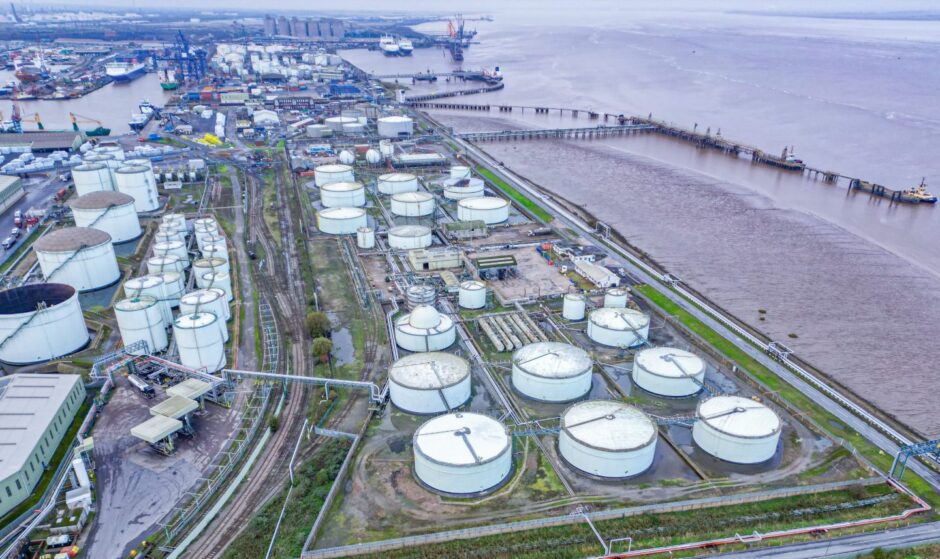
Spanish firm Exolum has claimed a “world first” green hydrogen project at the Port of Immingham in Lincolnshire.
The company, previously known as CLH Group, announced the start of its plan to transport and store green hydrogen on a commercial scale using existing oil infrastructure via liquid organic hydrogen carriers (LOHC).
Exolum said the pioneering scheme establishes a new model for hydrogen storage closer to consumption points such as ports and industrial areas using existing tank and pipeline infrastructure.
LOHCs are organic compounds that can absorb and release hydrogen through chemical reactions and can be used as a means of storing and transporting hydrogen in liquid form.
Exolum global strategy and growth lead Ignacio Casajús said: “The pioneering project we have launched proposes a realistic, safe and cheap formula for distributing green hydrogen that is in line with existing demand.
“In this way, we avoid developing new infrastructure by using our logistics network, one of the most efficient in the world. We are convinced that this initiative will make a decisive contribution to the decarbonisation of the economy and the diversification of alternative energy sources.”
Private equity-backed Exolum is one of the world’s largest liquid logistics companies with a major fuel pipeline and tank storage network in the UK. It delivers fuel to airports for around four out of every ten flights taking off from the UK each year. Its network includes the historic Simon Storage facilities at Immingham, which CLH acquired from Canada’s Inter Pipeline in 2020
The project has received funding from the UK government, which has provided £505,000 as part of the hydrogen storage and distribution supply chain collaborative R&D programme run by Innovate UK.
The trial will transport 400 cubic metres of LOHC containing 20 tonnes of hydrogen through a 1.5 km long pipeline connecting Exolum’s facilities at Immingham East and Immingham West in the Humber Region. Laboratory tests will be carried out to confirm that LOHC quality is maintained in this process.
This demonstration will also include a scientific study of the potential costs and benefits of converting, transporting, storing and releasing hydrogen as LOHC, to be published in early 2025.
Exolum estimates that its facilities in the UK will be able to distribute 4.6 TWh of hydrogen per year, 30% of the total demand forecast by the UK government for 2030. This project will contribute to the objectives of the UK government’s clean power mission 2030 by replacing the current underground storage facilities with terminals at the points of consumption of this gas.
Exolum, which began operating in the United Kingdom in 2015, has 22 storage terminals with more than 2.4 million cubic metres of capacity.
In addition to this project, the company is developing a green hydrogen production plant and refuelling station as part of the Tees Valley hydrogen vehicle ecosystem project, which also includes the construction of a water electrolyser and hydrogen refuelling station at the Exolum Riverside terminal in Stockton-on-Tees.
The electrolyser will produce green hydrogen using electricity from renewable sources and will supply both the planned refuelling station, with a capacity of 1.5 tonnes per day, and other customers in the region through the ‘hub and spoke’ distribution model.
Recommended for you

